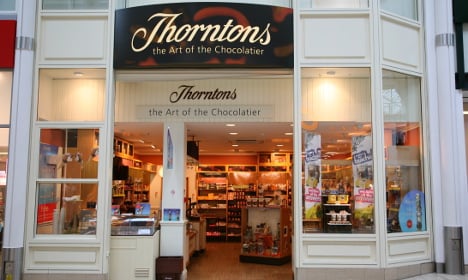Thorntons chairman Paul Wilkinson urged shareholders to accept the offer of 145 pence a share, a 42.9 percent increase on Friday's closing price.
“Ferrero is a successful global confectionery business with a strong family heritage and as such represents a good cultural fit for Thorntons,” he said in a statement.
“The board of Thorntons therefore has given its unanimous recommendation for the offer from Ferrero.”
The Italian company, which makes Nutella spread and the Ferrero Rocher and Kinder chocolates, said it wanted to expand further in an important market.
“Our business was founded nearly 60 years ago out of a passion for chocolate and with a commitment to quality,” said chief executive Giovanni Ferrero.
“We delivered our best ever results in the UK in 2014, giving us confidence that now is the right time to broaden our roots in this important market.”
Thorntons was established in 1911 and employs about 3,500 people, many of them located at its key factory in Alfreton in Derbyshire in northern England.
Ferrero was at the centre of a Franco-Italian spat last week when France's Ecology Minister Ségolène Royal explained on a popular French television programme that abstaining from Nutella was one measure to protect the environment – due to the spread's controversial palm oil content.
“We have to replant masses of trees because there's been a massive deforestation, which also leads to climate change,” she said.
“For example, we have to stop eating Nutella because of its palm oil, which is seeing trees getting replaced and causing considerable damage.”
Her comments provoked an angry backlast from her Italian counterpart Gian Luca Galletti who tweeted that Royal should “leave italian products alone”, adding that it would be “bread and Nutella for dinner tonight”.
The French minister later apologized.



 Please whitelist us to continue reading.
Please whitelist us to continue reading.
Member comments